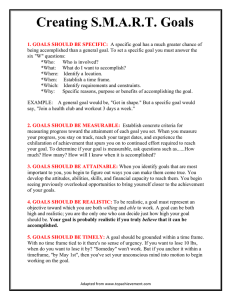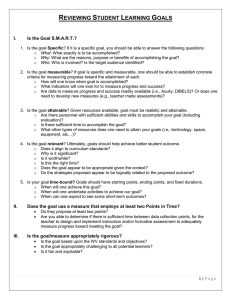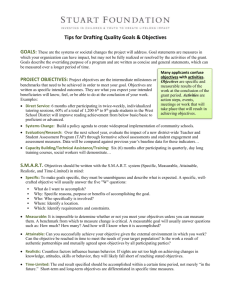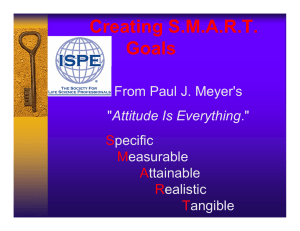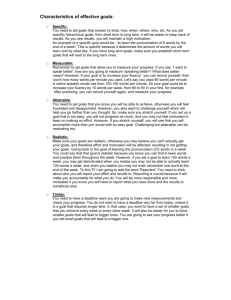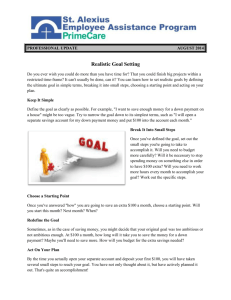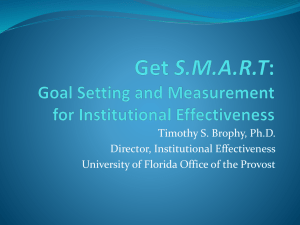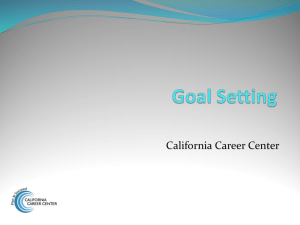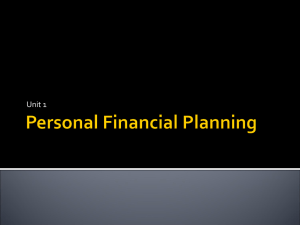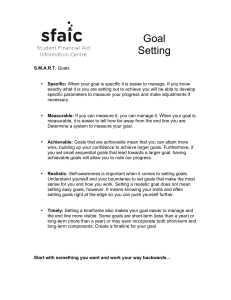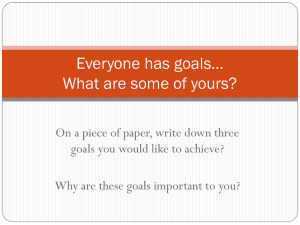Developing a Science Fair Question
advertisement
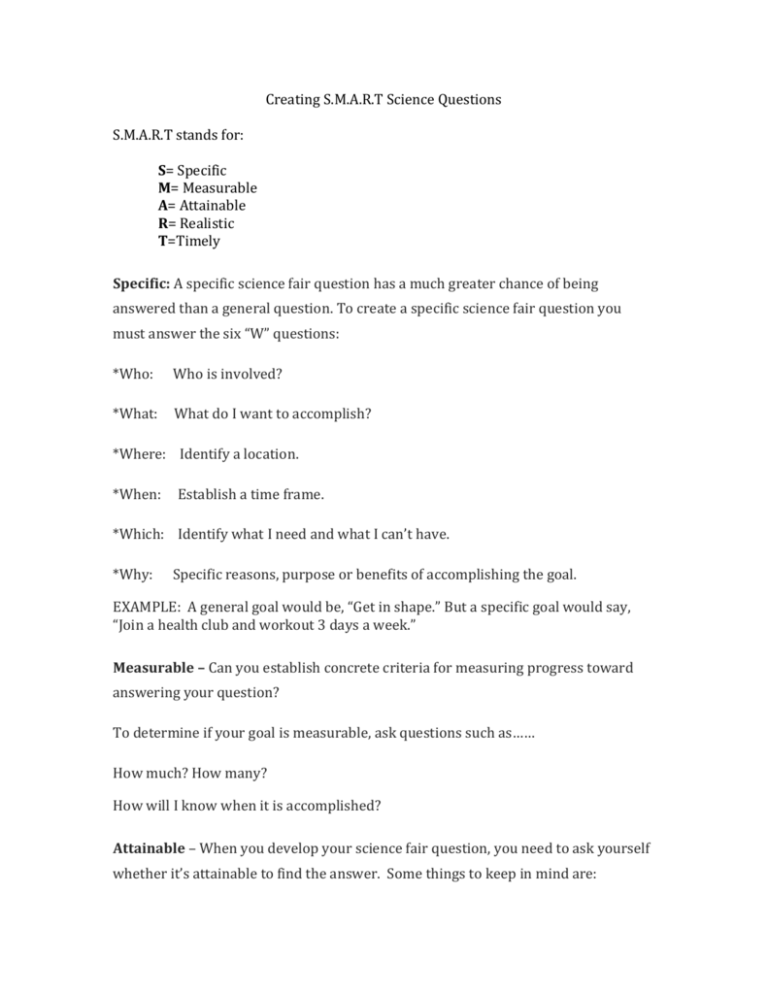
Creating S.M.A.R.T Science Questions S.M.A.R.T stands for: S= Specific M= Measurable A= Attainable R= Realistic T=Timely Specific: A specific science fair question has a much greater chance of being answered than a general question. To create a specific science fair question you must answer the six “W” questions: *Who: Who is involved? *What: What do I want to accomplish? *Where: Identify a location. *When: Establish a time frame. *Which: Identify what I need and what I can’t have. *Why: Specific reasons, purpose or benefits of accomplishing the goal. EXAMPLE: A general goal would be, “Get in shape.” But a specific goal would say, “Join a health club and workout 3 days a week.” Measurable – Can you establish concrete criteria for measuring progress toward answering your question? To determine if your goal is measurable, ask questions such as…… How much? How many? How will I know when it is accomplished? Attainable – When you develop your science fair question, you need to ask yourself whether it’s attainable to find the answer. Some things to keep in mind are: -Do I have the proper equipment to complete an experiment to answer my question? -Am I knowledgeable enough on my topic to develop an experiment to find the answer to my question? -Do I have the proper mentoring I might need to help guide me to an answer? -Do I have the money to buy the equipment I might need for my experiment? Realistic- To be realistic, a science fair question must represent an objective toward which you are both willing and able to work. A goal can be both high and realistic; you are the only one who can decide just how high your goal should be. But be sure that every goal represents substantial progress. Timely – A science fair question should be grounded within a time frame. With no time frame tied to it there’s no sense of urgency. If you want to lose 10 lbs, when do you want to lose it by? “Someday” won’t work. But if you anchor it within a timeframe, “by May 1st”, then you’ve set your unconscious mind into motion to begin working on the goal. Your goal is probably realistic if you truly believe that it can be accomplished. Additional ways to know if your science fair question is realistic is to determine if you have accomplished anything similar in the past or ask yourself what conditions would have to exist to accomplish this goal. Then use my timeline to help you complete the different aspects of the science fair project in a timely manor. "Creating S.M.A.R.T. Goals — Top Achievement." Creating S.M.A.R.T. Goals. Top Achievement. Web. 09 Nov. 2011. <http://topachievement.com/smart.html>.
